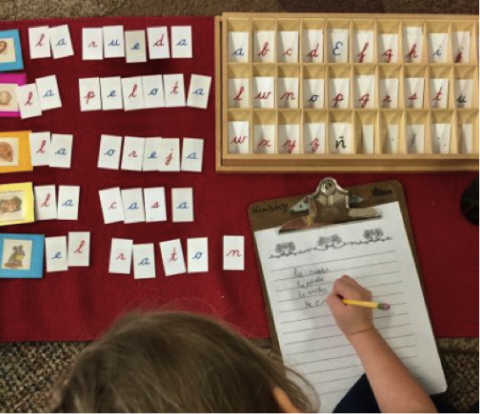
3 Reasons Why We Need More Dual Language Programs
*** Want more information on raising multilingual children? Visit MomsRising's bilingual parenting resource site: http://action.momsrising.org/survey/bilingual_baby/?source=blog
The internet gave me access to countless resources for reading, music and games that complemented my daughter’s Spanish learning. Likewise, taking her often to Ecuador was very helpful. But, what strengthened my daughter’s bilingualism was enrolling her in dual language program when she started school.
Dual language programs are specially designed to develop dual language proficiency through academic instruction. It is currently estimated that there are 2000 dual language programs in the United States. But we need more! I will outline three important reasons why I believe creating more dual language programs will benefit children.
1. Cultural Responsiveness
In this era of globalization, it is imperative that our children develop tools that allow them to interact more effectively with diverse communities. Bilingual education provides language tools while also helping our children appreciate the values of tolerance and respect by expanding their worldview.
2. Bilingualism
The benefits of being bilingual in terms of employment, salary and even health opportunities are significant. Richard Riley, when he was Secretary of Education in 2000, noted that our nation would be stronger with bilingual citizens. Riley said: “In a global economy, knowledge and knowing a language is power.”
3. Academic Advantage
A study conducted by two emeriti professors of George Mason University, Virginia Collier and Wayne Thomas, revealed that bilingual children had better academic performance than their monolingual peers. Another study that surveyed 85,662 students in North Carolina public schools, revealed that during the years 2009-2010, bilingual students obtained better grades in reading than their peers that were not bilingual. Another study conducted at schools in Portland, produced similar results.
Dual language programs have benefited many children in the country. And, without a doubt, these bilingual citizens will make our nation stronger!
What do you think of dual language programs?



The views and opinions expressed in this post are those of the author(s) and do not necessarily reflect those of MomsRising.org.
MomsRising.org strongly encourages our readers to post comments in response to blog posts. We value diversity of opinions and perspectives. Our goals for this space are to be educational, thought-provoking, and respectful. So we actively moderate comments and we reserve the right to edit or remove comments that undermine these goals. Thanks!